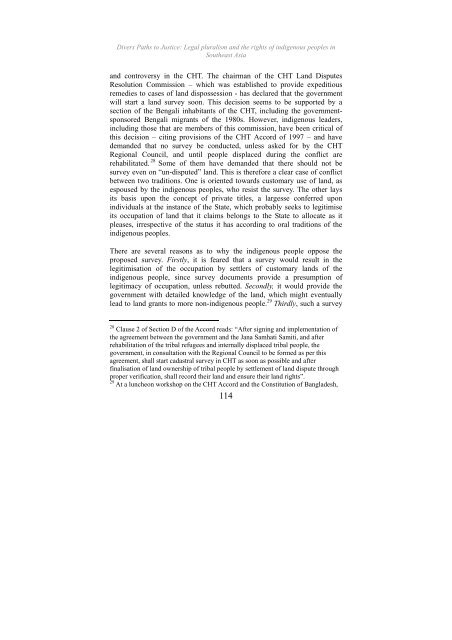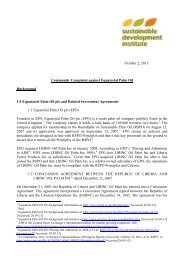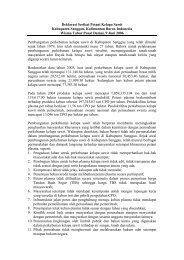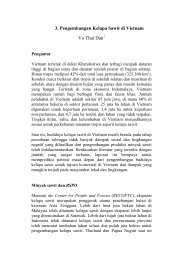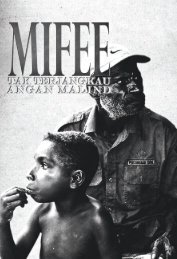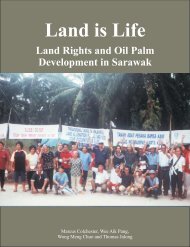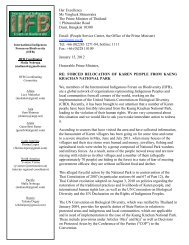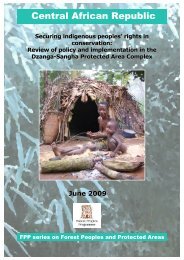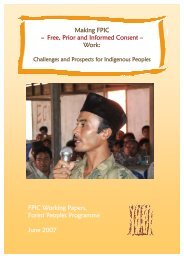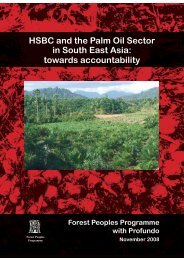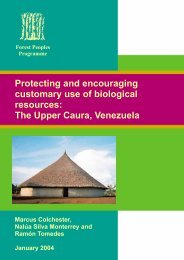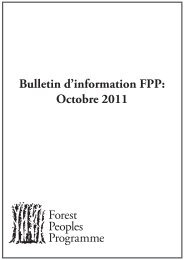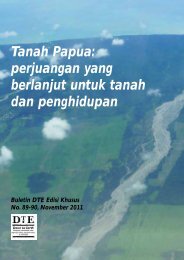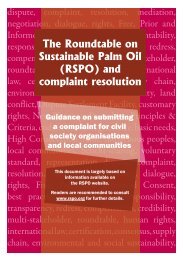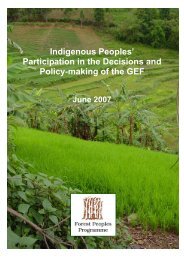Divers Paths to Justice - English - Forest Peoples Programme
Divers Paths to Justice - English - Forest Peoples Programme
Divers Paths to Justice - English - Forest Peoples Programme
Create successful ePaper yourself
Turn your PDF publications into a flip-book with our unique Google optimized e-Paper software.
<strong>Divers</strong> <strong>Paths</strong> <strong>to</strong> <strong>Justice</strong>: Legal pluralism and the rights of indigenous peoples inSoutheast Asiaand controversy in the CHT. The chairman of the CHT Land DisputesResolution Commission – which was established <strong>to</strong> provide expeditiousremedies <strong>to</strong> cases of land dispossession - has declared that the governmentwill start a land survey soon. This decision seems <strong>to</strong> be supported by asection of the Bengali inhabitants of the CHT, including the governmentsponsoredBengali migrants of the 1980s. However, indigenous leaders,including those that are members of this commission, have been critical ofthis decision – citing provisions of the CHT Accord of 1997 – and havedemanded that no survey be conducted, unless asked for by the CHTRegional Council, and until people displaced during the conflict arerehabilitated. 28 Some of them have demanded that there should not besurvey even on “un-disputed” land. This is therefore a clear case of conflictbetween two traditions. One is oriented <strong>to</strong>wards cus<strong>to</strong>mary use of land, asespoused by the indigenous peoples, who resist the survey. The other laysits basis upon the concept of private titles, a largesse conferred uponindividuals at the instance of the State, which probably seeks <strong>to</strong> legitimiseits occupation of land that it claims belongs <strong>to</strong> the State <strong>to</strong> allocate as itpleases, irrespective of the status it has according <strong>to</strong> oral traditions of theindigenous peoples.There are several reasons as <strong>to</strong> why the indigenous people oppose theproposed survey. Firstly, it is feared that a survey would result in thelegitimisation of the occupation by settlers of cus<strong>to</strong>mary lands of theindigenous people, since survey documents provide a presumption oflegitimacy of occupation, unless rebutted. Secondly, it would provide thegovernment with detailed knowledge of the land, which might eventuallylead <strong>to</strong> land grants <strong>to</strong> more non-indigenous people. 29 Thirdly, such a survey28 Clause 2 of Section D of the Accord reads: “After signing and implementation ofthe agreement between the government and the Jana Samhati Samiti, and afterrehabilitation of the tribal refugees and internally displaced tribal people, thegovernment, in consultation with the Regional Council <strong>to</strong> be formed as per thisagreement, shall start cadastral survey in CHT as soon as possible and afterfinalisation of land ownership of tribal people by settlement of land dispute throughproper verification, shall record their land and ensure their land rights”.29 At a luncheon workshop on the CHT Accord and the Constitution of Bangladesh,114


